
Eiko Kujo
Nacimiento : 1935-10-22, Tokyo, Tokyo Prefecture, Japan
Muerte : 2014-04-30
Historia
Kujyo Kyoko (October 22, 1935 - April 30, 2014) was a Japanese actress, theater, film producer from Azabu, Tokyo. The stage name of the actress was Eiko Kujo (Kujo Eiko). Real name is Eiko Terayama (Torayama Eiko). Husband Shuji Terayama.
After graduating from Mihoda Gakuen Junior High School · High School, she debuted on the stage of Shochiku Opera Group under the name of Eiko Kujo. After that, she moved to Shochiku movie and appeared in Yoshitaro Nomura's film "Yellow cherries" (1960) etc etc.
In 1967 Shuji Terayama, Tadanori Yokoo and others founded "Drama Laboratory / Ceiling Arts", and Kujo is responsible for the production. Also made a movie.
In 1970 she got divorced from Terayama (except Terayama's surname). After Terayama died in 1983, she was in charge of the copyright management of the Terayama work and gave lectures all over the country. In recent years I gave a lecture at Hirosaki Gakuin University in 2009.
She served as Representative Director of Terayama World Limited Company.
Misawa City Shuji Terayama memorial hall honorary director. Misawa City Tourism Ambassador.
On April 30, 2014, she died at his house in Tokyo due to rupture of esophageal varices due to cirrhosis of the liver. 78 year old died.
From Wikipedia, the free encyclopedia
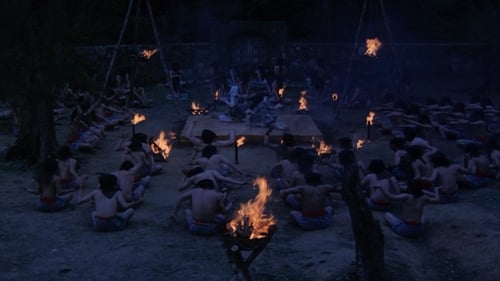
Producer
Su-e (Mayumi Ogawa) y su primo Sutekichi (Tsutomu Yamazaki), quieren vivir juntos, pero su padre les prohibe tener contacto sexual. Al igual que otros lugareños, creen que si tienen hijos primos juntos, los niños sufrirán graves defectos de nacimiento. Su remedio es escapar con Su-e. Después de algún tiempo transcurrido, los dos hacen el camino de regreso a la aldea, pero para entonces Sutekichi sufrirá los efectos de sus acciones.
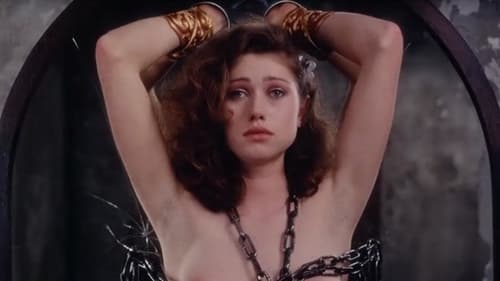
Producer
Secuela espiritual de "La historia de O". “Les Fruits de la Passion” es un melodrama erótico ambientado en el Hong Kong de los años 20. Kinski, un europeo decadente con negocios en la ciudad, envía a su mujer a un burdel para profundizar en su amor física y espiritualmente. El tema de la sumisión, del sufrimiento y la ofensa que aparecían en la cinta de 1975 son retomados aquí, en cuyo burdel de fantasía se muestran viñetas de tortura, fetichismo y perversiones diversas. “O” debe renunciar a cualquier deseo para amar completamente a Sir Stephen, quien se deleita martirizándola mostrándole como ama también a otra mujer, Nathalie, interpretada por Arielle Dombasle. El trío se rompe cuando un cuarto personaje, un joven que envía flores a la bella encarcelada, se introduce entre la pareja protagonista para hacer suya a “O”.

Producer
Visions of characters by the seaside from one's memory are erased by the filmmaker's hand.
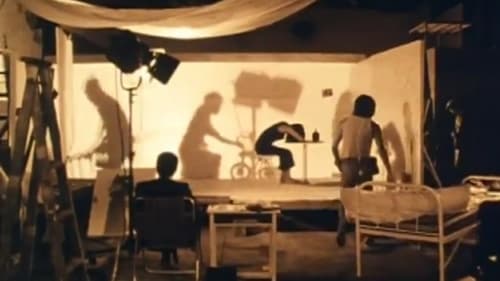
Producer
As a family goes on with their day, the shadows on their walls lead a completely different life.

Producer
In this Borgesian satire on knowledge and technology, bibliophilic desire leads to the construction of a pedal-powered reading machine. Resembling a combination of gymnastic contraption, printing press and early cinematic apparatus, the machine’s purpose remains ambiguous. And like this machine, Terayama’s film connects his work in poetry, motion picture and graphic design by weaving together printed and projected, still and moving images.

Producer
Using bluescreen video techniques, Terayama playfully—and with a silent film theatricality—posits a series of postmodern vignettes featuring realities-within-realities as his protagonist attempts some kind of relationship with a nude woman on the screen-within-the-screen. In his struggles to “free” her, he exposes the absurd flimsiness, deceptiveness and mutability of both the cinema experience and our human dimension.

Producer
An experimental short featuring people and nails.

Producer
The smallpox virus has created its own unique atmosphere in Terayama’s film where the skin of a bandaged adolescent and the surface of the filmic image are subjected to a bizarre ‘disturbance’ as snails cross the screen and nails are hammered into the skull of the ailing patient. Illness in this film is as much a psychic entity as a physical one and manifests itself in an array of theatrical tableaux from grotesque women rigorously brushing their teeth to a snooker game where the players in white face makeup behave like automata. A Tale of Smallpox uses a medical theme to chart the traumatic dream life of Terayama’s times, evincing deep-rooted concerns in the Japanese national psyche that hark back to the upheaval of Meiji modernisation and the devastation of World War Two.
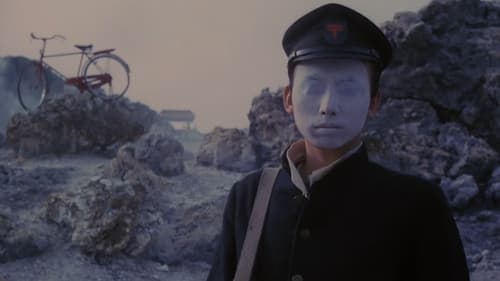
Producer
Un chico decide escapar de su casa con la mujer de su vecino porque está enamorado de ella.
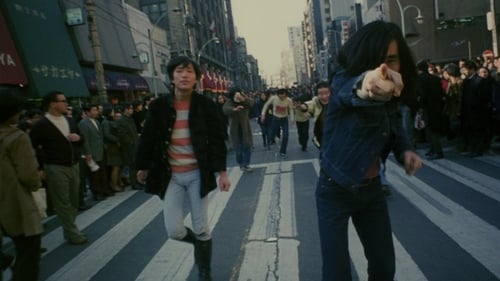
Producer
Shuji Terayama debutó como director con este film sobre la alienación y el ansia por una revolución sociopolítica por parte de la contracultura juvenil de los 60. A través de imágenes fragmentarias el director nos narra la incertidumbre y el caos en los que se ve sumido un joven y su familia disfuncional.

Producer
Finished shooting in 1962, the movie’s cast was almost the same as its crew. With a bunch of experimental symbols such as skinny human body, clock and goat flow from one scene to another, the film explores the question of whether a man is a prisoner of time.

Finished shooting in 1962, the movie’s cast was almost the same as its crew. With a bunch of experimental symbols such as skinny human body, clock and goat flow from one scene to another, the film explores the question of whether a man is a prisoner of time.

Hitomi Akutsu
Japanese comedy film.

Miyoko Edamura
En 1960, el impacto político que la revisión del Tratado de Seguridad entre Estados Unidos y Japón causa en la sociedad japonesa hace que Shimojo, un joven despreocupado que vive temerariamente, abandone el movimiento estudiantil y a sus compañeros, y empiece a interesarse en organizaciones terroristas.

The story tells of Tsuchiya, a university professor and a widower who is in love with a widow who runs a small restaurant, and his son is in love with a runaway girl who turns out to be the leader of a religious sect. Kusano is the henpecked proprietor of a rice biscuit shop who dreams of owning a bird and dog shop and his daughter is in love with a boarder, employed by the private detective agency searching for the runaway girl. The agency head has his own dream of arranging thirty marriages and has already accomplished twenty-seven. Tatsumi is a newspaper reporter who dreams of a big scoop to enable him to marry a girl TV producer and his friend a mountain climbing enthusiast who dreams of joining a Himalayan expedition but is opposed by his wife. His love of the mountains is shared by a boarder in their home and by a fishmonger's son.

Comedy about the trials and tribulations of youth.

A boy, who is separated from his mother in an air raid, endures suffering and grief alongside his kind uncle.
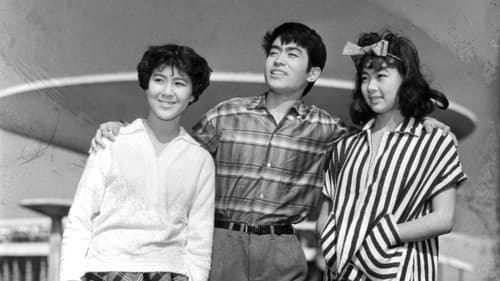
A playful short film made in the style of a trailer for a fictional feature film that seems to be a spoof of films that were popular in Japan at the time.

The common-law wife and daughter of a wealthy old man plot to murder him and steal his fortune, with the help of their male acquaintances.









